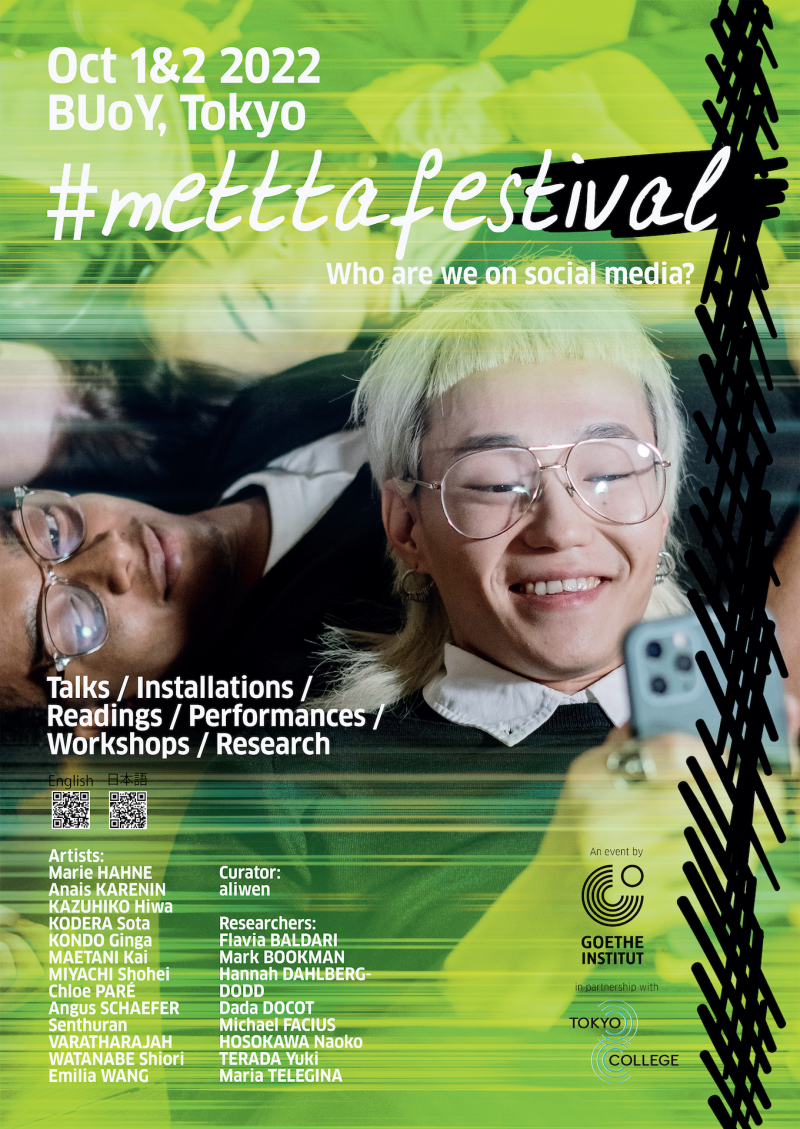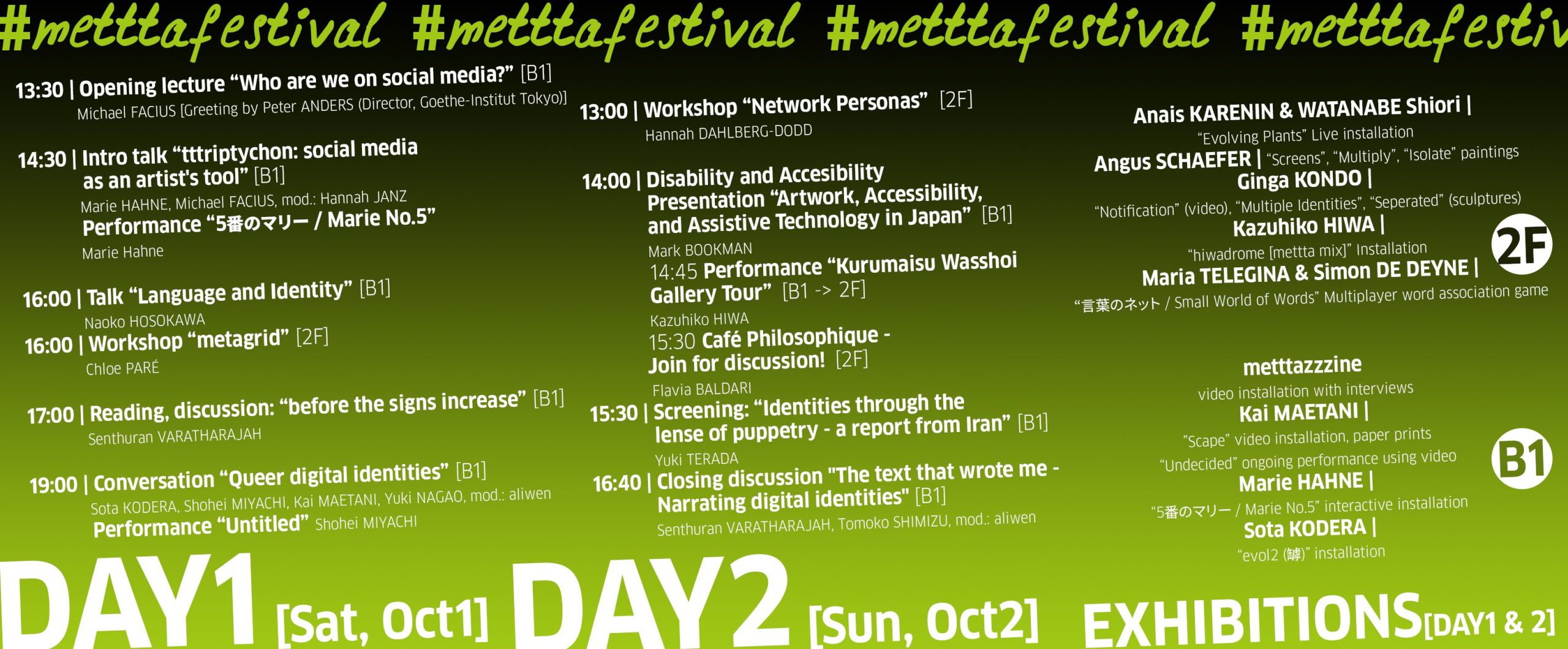#metttafestival


| Date(s) | Saturday 1 & Sunday 2, October 2022 |
|---|---|
| Venue |
Address:49-11, Senju-Nakacho, Adachi-ku, Tokyo [map] |
| Registration | Pre-registration required |
| Language | English and Japanese |
| Abstract |
“Who are we on social media” – The German culture center Goethe Institut Tokyo partnered with Tokyo College to explore this question in a hybrid festival that will take place on October 1&2 at the art space BUoY in Tokyo’s Kitasenju district. It will bring together academic and artistic positions. Large parts of the symposium will be broadcast with the support of other Goethe-Instituts in East Asia and South East Asia to enable cross-regional participation. Researchers from Tokyo College will present current research on identity topics in dense, entertaining formats and relate these to interviews produced for an Instagram project called metttazzzine as well as to the artistic contributions on site. The opening talk will set the framework for the festival by illuminating how identities are created through narrative processes on digital platforms. |
| Program |
List of Participants from Tokyo College and Activities Day1 13:30 Opening lecture “Who are we on social media?” [Michael FACIUS] 14:30 Intro talk “tttriptychon: social media as an artist’s tool” [Michael FACIUS and others] 16:00 Talk “Language and Identity” [Naoko HOSOKAWA]
Day 2 13:00 Workshop “Network Personas” [Hannah DAHLBERG-DODD] 14:00 Disability and Accessibility Presentation “Artwork, Accessibility, and Assistive Technology in Japan” [Mark BOOKMAN] 15:30 Café Philosophique -Join for discussion! [Flavia BALDARI] 15:30 Screening: “Identities through the lens of puppetry – a report from Iran” [Yuki TERADA]
Exhibitions [Day 1 & 2] Maria TELEGINA & Simon DE DEYNE “言葉のネット/Small World of Words” Multiplayer word association game |
| Organized by | Goethe-Institut Tokyo |
| Contact | rei.watanabe@goethe.de |














